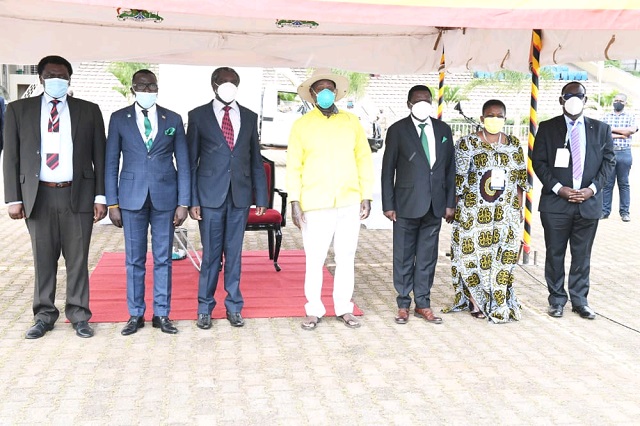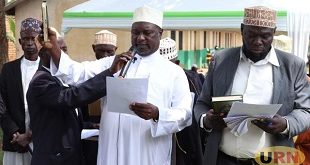
Kampala, Uganda | THE INDEPENDENT | The Netherlands Institute for Multiparty Democracy-NIMD has asked the government to amend the Political Parties and Organisations Act to provide for the establishment of mentorship programs for youth in the different political parties.
Presenting results of a study on the challenges facing youth and women in participating in leadership, Prosper Mubangizi, a political analyst said that several youths are not well groomed by senior members in their respective political parties.
Mubangizi through NIMD conducted a study, in which several group discussions were held with youth to gather their views on the challenges they face to participate in leadership. The youths reported that it’s hard for them to get proper guidance because most of the people in the parties mind their interests.
Mubangizi says that the Act should be amended such that political parties are obliged to conduct mentorship programs. He says although the parties are funded by the government to conduct mobilization activities, several don’t put emphasis on mentoring the young people.
Mubangizi also adds that the youths need to be empowered economically because the elections are highly monetised and the situation is not about to change soon. He says that for youths and women to compete favorably with others, they should have the funds to conduct campaigns.
A 2020 study by NIMD showed that the average amount of money spent by a candidate in primaries and general elections of 2016 was Shillings 465 million. Several youths who are languishing in poverty, unemployment, and underemployed can’t afford this much.
After Mubangizi’s presentation, several discussants shared experiences and views on why young people and women are still few in political leadership. Emmanuel Wabwire, the Executive Director of Faraja Africa Foundation, said that there is a mentorship gap, adding that initially the institutions were strong and provided a platform for the youths to grow but this has since changed. He said that youths have now been left to the rough politics influenced by money, which many do not have.
He says that the civil society, private sector, parliament, and other organs of government should work together to empower the youth to take up positions of leadership beyond those of affirmative action.
Judith Peace Achan, the woman representative for Nwoya and a Member of the Parliamentary Youth Forum explained that she faced numerous challenges when she ran for the woman’s seat in 2016. According to Achan, she started to do research in 2013 on what position she would take. She however says that there is a cultural challenge where people from the Acholi region, say open seats are for men and for women to take it up, they are tasked to dress like men and prove they are worth.
Julia Muhumuza, the Vice Chairperson of Uganda National Students Association-UNSA, says that the fight for women to take up spaces has been partly crippled by seemingly already empowered women who don’t create space for younger women to take up leadership positions. She referred to the affirmative action that creates a seat for women at the district level and youth representatives where some candidates have stagnated coming for the second, third, or more terms yet they could take up open seats and pave way for the younger ones to replace them.
On his part, Ismail Kirya, the president of the Uganda Young Democrats, said that the law on affirmative action should be amended to introduce term limits such that a woman can serve for a maximum of two terms. Kirya says without term limits, older women shall continue occupying affirmative action seats hence blocking or reducing the chance of young females to advance in political leadership.
Julius Tusiime Karuhanga, a member of Parliament from Rwampara, says that youths and women should set their own agenda, identify the issues that affect them, and pursue them without disruption. He says that several politicians are not interested in grooming young leaders but rather patronize them for their own career growth and other selfish interests.
Youths and women in parliament occupy the least open seats in Parliament.
*****
URN
 The Independent Uganda: You get the Truth we Pay the Price
The Independent Uganda: You get the Truth we Pay the Price



